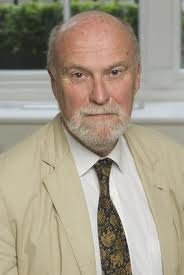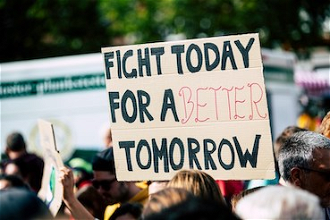Ian Linden: How 'Global Britain' is letting down the world's poor

Professor Ian Linden. Image: RCDOW
From Friday 27 January a Yemeni family tuning in to the BBC World Service Arabic broadcasts would be disappointed. To save £28 million towards a shortfall caused by inflation and freezing of the license fee, BBC radio's ten language services are being shut down and several hundred staff made redundant. It's digital or TV now for those who can afford it.
Yemen is a destitute, hungry, war-torn country. Few will have the money to buy a mobile phone to catch the only independent news on-line. This unseen discrimination against the poorest in the world may seem a minor, distant matter. But it is small part of a bigger picture. And we should be concerned.
For the last few years, the UK has been behaving as if it didn't have enough money to pursue a coherent Foreign, Commonwealth and Development policy (FCDO). Yet we were one of the 19 founder signatories of the OECD (Organization of Economic Cooperation and Development) in 1960. It numbers 38 democracies today. Its mandate is to promote 'a collaboration in policy standards to promote sustainable growth". It describes development assistance as directed at "economic development and welfare of developing countries". Do we really share these goals? There is growing evidence we don't.
In 2021 the aid budget was 'temporarily' (weasel words - it is likely to stay that way until the end of the decade) reduced from the UN target of 0.7% of GNP (Gross National Product) to 0.5%. This amounted to a cut of 21% from £14.5 billion to c.£11.4 billion of which c.£7.14 billion (62.6%) was in the form of direct bilateral aid to individual countries, some of it via the World Food Programme, for example feeding the starving in Yemen. The overall budget for Yemen was halved in 2021 from £221 million to £114 million. Yet need continued to grow.
Cuts in spending for Lebanon are another egregious example. In July 2021, a year after a huge explosion in a port warehouse caused extensive devastation in Beirut, and on top of Lebanon's economic collapse, the incoming British ambassador, Ian Collard, inherited an aid budget of £140 million cut from £260 million for the period 2019-2020. According to the newspaper L'Orient Today a further 2021-2022 cut was scheduled to reduce the budget to c. £32 million. Lebanon hosts 2.2 million Syrian refugees and over 200, 000 Palestinians. Its total population is 5.6 million, 40% of whom now require humanitarian assistance. It doesn't take much imagination to predict the impact of across-the-board cuts of this magnitude on British embassies' capacity to promote 'economic development and welfare'. You might have thought that Lebanon, a failed State, tucked perilously between Israel and Syria, would fall within the Foreign and Development Office priority category, alongside Syria and Afghanistan. Not so.
In June 2020 Boris Johnson described the aid budget as a "giant cashpoint in the sky" and amalgamated our development ministry with the Foreign Office. But who is making the withdrawals and for what purpose? The Home Office for one. A more accurate description is the budget for plugging holes - of which there are many such as the rising cost of housing and feeding refugees in this country.
We have an aid ceiling in the UK. So payment of hotels, for food and other burgeoning refugee expenses cannot be covered by adding to the overall budget which is fixed. An interesting set of submissions to a December 2022 Parliamentary Select Committee on International Aid on the funding of asylum seekers and economic migrants arriving in UK, (on-line thanks to the Washington and London based Global Center for Development), provides detailed evidence. 12% of the UK aid budget is being used to meet some of the current Treasury shortfall. And the sum could double. Just as the effects of climate change are being felt, this means drastic cuts in life-saving humanitarian aid let alone development aid. £700 million went to East Africa to mitigate the consequences of the 2016-2018 droughts. £156 million was budgeted for last year's continuing and no less severe drought.
Over 150,000 thousand applicants for asylum in Britain are waiting for a decision on their status, tens of thousands have been waiting for over three years. In Germany, using a UNHCR triage system, the wait is on average 6-7 months. We are dealing with far fewer Ukrainian refugees than Germany which has issued six times the number of UK visas, or neighbouring Poland which has accepted 1.26 million. Yet, here in the UK the arrival of 45,750 people in small boats in 2022 is treated as a national crisis while the inefficiency and waste of the Home Office is covered by money taken from the world's hungry....
To read on see: www.ianlinden.com/latest-blogs/how-global-britain-is-letting-down-the-worlds-poor
Professor Ian Linden is Visiting Professor at St Mary's University, Strawberry Hill, London. A past director of the Catholic Institute for International Relations, he was awarded a CMG for his work for human rights in 2000. He has also been an adviser on Europe and Justice and Peace issues to the Department of International Affairs of the Catholic Bishops Conference of England and Wales. Ian chairs a new charity for After-school schooling in Beirut for Syrian refugees and Lebanese kids in danger of dropping out partnering with CARITAS Lebanon and work on board of Las Casas Institute in Oxford with Richard Finn OP. His latest book was Global Catholicism published by Hurst in 2009.
LINK
Professor Ian Linden website: www.ianlinden.com/





















